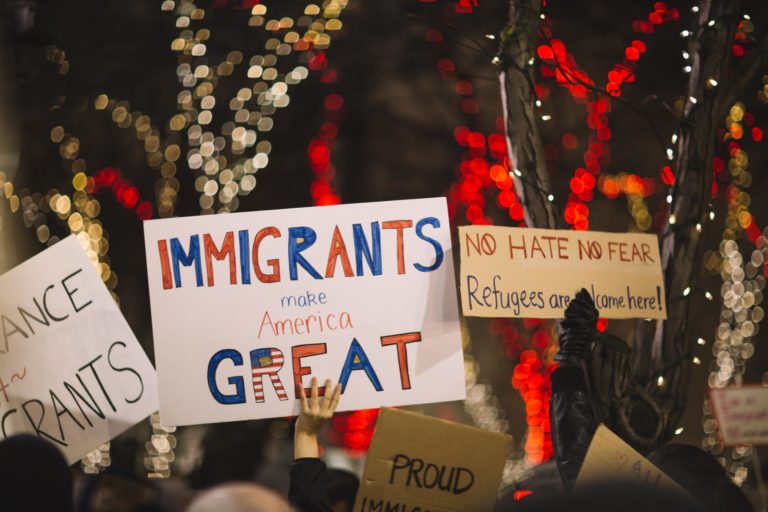What Adoption Taught Me About Family Separation

As Immigration and Customs Enforcement (ICE) prepares to begin immigration raids tomorrow, my heart breaks for the children currently waiting to be reunited with their parents and those who may be separated in the near future. Being adopted, I understand the lifelong trauma they face and urge policymakers to do everything in their power to fight for family preservation.
When the hashtag #FamiliesBelongTogether started trending last year in response to Trump’s “zero tolerance” policy, I began noticing similarities between adoption rhetoric and the anti-immigration movement. Both are predicated on biased assumptions about who is more deserving of the right to parent. Dehumanizing references of migrant parents as abusive or criminal help justify the practice of family separation.
In pro-adoption narratives, adoptive parents are often portrayed as saviors- offering children a “better” life than their birth families could offer. But, if decisions were truly made in the best interest of children, family separation would be considered only as a last resort. By the time a child has been removed from their parent’s care, irrevocable damage has already been done.
In 2008, I returned to South Korea for the first time since being adopted. During a tour of the “babies home” of Eastern Social Welfare Society, I walked past a room with newborns who had been relinquished by their birth parents. Inside were two volunteers struggling to comfort more than twenty crying infants. I watched helplessly from behind the glass as the social worker reminded me that I was once one of those babies. The sound of their cries was haunting- the grief, palpable.

In Primal Wound: Understanding the Adopted Child, author and psychotherapist Nancy Newton Verrier says that after infants are separated from their biological mothers, “the resultant experience of abandonment and loss is indelibly imprinted upon the unconscious minds of these children.” Olivia Caceres, a mother who was separated from her 1-year-old son for 85 days, said her son is not the same since being reunited. “I thought that, because he is so young he would not be traumatized by this experience, but he does not separate from me. He cries when he does not see me. That behavior is not normal.”
At a hospital in Texas, an OB-GYN reported multiple cases of pregnant migrants who were forced to give up their children to Texas Department of Family and Protective Services (DFPS) shortly after giving birth. The doctor shared an example of a detained woman who “cried for 72 hours straight” after DFPS attempted to place her newborn in foster care. My own birth mother, with whom I was reunited in 2013, described her grief over relinquishing me as a feeling she still can’t forget today.
The US Public Health Service Commissioned Corps has already discovered more than 1,700 cases of possible separation. Government officials say it may take up to two years to identify all of the families who were affected. In the meantime, children are left vulnerable to a flawed system. Fox News Channel host Laura Ingraham suggested, “We should make adoption easier for American couples who want to adopt these kids.”
An Associated Press investigation identified holes in the immigration system that allow state court judges to grant custody of migrant children to American families without notifying their parents. The federal Adoption and Safe Families Act (ASFA) even enables courts to terminate a parent’s rights, if their child has been in foster care for 15 months in a 22-month period.
Even children who are returned to their families, placed into foster care, or adopted have been permanently marked by trauma. Adverse Childhood Experiences (ACEs) is a term used to describe the traumatic experiences – like being forcibly separated from a parent – that occur to people under the age of 18. The presence of ACEs increases the risk for chronic health conditions, depression, and even early death through adulthood. Though the trauma can never be undone, restoring children to their families is an imperative next step in the healing process.
June is National Reunification Month, which originated as recognition for efforts in the foster care system to help families stay together. The month became especially significant to me after being reunited with my birth family. Reunification now holds an urgent new meaning amid family separations at the border. Beyond working to reunite separated families, we should find ways to prevent separation from occurring in the first place. Imagine what immigration policy might look like if we led with our hearts, rather than fear.
Author Khalil Gibran once wrote, “And ever has it been that love knows not its own depth until the hour of separation.” This loss transcends borders and policies. It’s time for us to reach into our own depth and acknowledge the universal truth about where families belong. Together.






